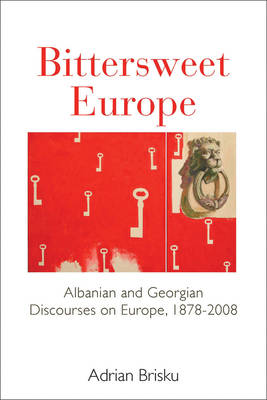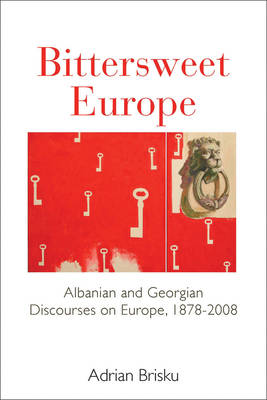
- Retrait gratuit dans votre magasin Club
- 7.000.000 titres dans notre catalogue
- Payer en toute sécurité
- Toujours un magasin près de chez vous
- Retrait gratuit dans votre magasin Club
- 7.000.000 titres dans notre catalogue
- Payer en toute sécurité
- Toujours un magasin près de chez vous
Bittersweet Europe
Albanian and Georgian Discourses on Europe, 1878-2008
Adrian BriskuDescription
From the late nineteenth century to the post-communist period, Albanian and Georgian political and intellectual elites have attributed hopes to "Europe," yet have also exhibited ambivalent attitudes that do not appear likely to vanish any time soon. Albanians and Georgians have evoked, experienced, and continue to speak of "Europe" according to a tense triadic entity-geopolitics, progress, culture-which has generated aspirations as well as delusions towards it and themselves. This unique dichotomy weaves a nuanced, historical account of a changing Europe, continuously marred by uncertainties that greatly affect these countries' domestic politics as well as foreign policy decisions. A systematic and rich account of how Albanians and Georgians view Europe, this book offers a fresh perspective on the vast East/West literature and, more broadly, on European intellectual, cultural, and political history.
Spécifications
Parties prenantes
- Auteur(s) :
- Editeur:
Contenu
- Nombre de pages :
- 256
- Langue:
- Anglais
Caractéristiques
- EAN:
- 9780857459848
- Date de parution :
- 01-08-13
- Format:
- Livre relié
- Format numérique:
- Genaaid
- Dimensions :
- 152 mm x 229 mm
- Poids :
- 512 g







